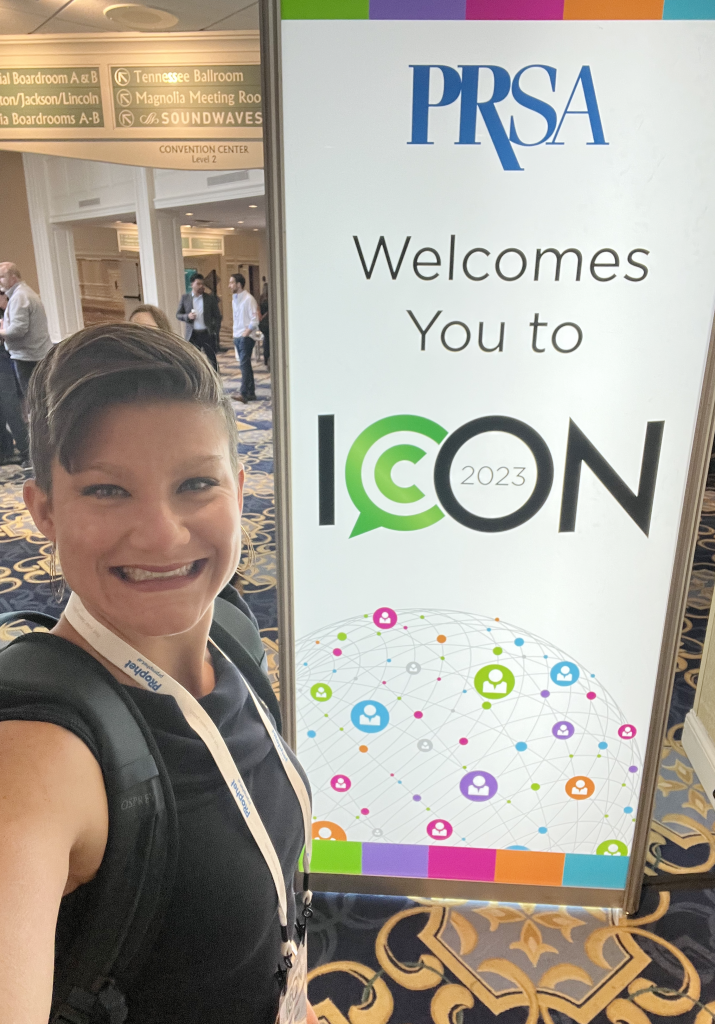As we continue our deep dive on the changes to education and the impacts to students, parents and staff brought on by the novel COVID-19 pandemic, we connected with Lindsay Whitley, the Associate Superintendent of Communications and Community Engagement for Cumberland County Schools, the fifth largest school district in North Carolina. We got his perspective on how his district has been impacted by the coronavirus and how his team has responded in this time of crisis. He serves as chief communication strategist and is responsible for overseeing external and internal communications generated on behalf of the school system.
RB: How would you describe your professional climate right now?
LW: Due to the uncertainty and anxiety felt across the nation, our professional climate is ever-changing. Although school communications professionals are under a lot of stress right now, we are becoming more and more innovative, adapting to a new way of leading, communicating and operating. Our team at Cumberland County Schools (CCS) has jumped right in during this time, showing perseverance, creativity and dedication to our students and schools. Our pace of work has not slowed down. In fact, we have learned to communicate quicker than ever while also maintaining clarity and accuracy.
RB: Are you working remotely?
LW: Yes, I am working remotely from home, along with my wife, who is a teacher, and our two sons who are adapting to online learning. Being at home has been a nice break from the office, but it comes with new challenges. I have been back to the office a few times for essential items like printing new signage, signing documents, etc.
RB: Are you and your team utilizing any Zoom, Google Hangouts or Skype virtual meetings?
LW: CCS is a Google district, so we are using Google Meet and Google Docs. We also occasionally use Zoom and other virtual meeting sites.
RB: What channels are you utilizing most to share updates and communicate with your community?
LW: As a communicator, I believe in using all available communication channels because everyone receives information in different ways. We always communicate internally first—to our employees and board members, mainly through email. To communicate with external stakeholders, we utilize social media, Parent Link (phone and texting system), media and our website, which has been completely overhauled to accommodate COVID-19 updates and information.
We are always sure to communicate directly with opinion leaders, elected officials and other stakeholders, usually through email.
Additionally, we are taking special care to keep our media partners updated. I have been doing a weekly radio interview to provide updates and information.
RB: What are the most common questions you’ve received from your community members so far?
LW: One thing we know for sure is that our community cares about our children and schools. We have heard from concerned parents, grandparents, neighbors and community members who want to make sure children are being fed and still have access to learning. Parents are asking about grades and what these changes might mean for our high school seniors and graduation.
We are receiving guidance from the state on these issues so at this time, we don’t have all the answers. But we do know that we want students to keep learning. We also want to celebrate the Class of 2020. Dr. Connelly (the superintendent of CSS) recently wrote an open letter to the Class of 2020. We hope our seniors know we are offering hope in the face of adversity.
RB: What advice is your district giving?
LW: During these uncertain times, our main concern is the well-being of our students, families and staff. We are focused on caring for the whole child, ensuring students are fed, cared for and also have what they need to continue learning. We understand that this is not business as usual. We encourage everyone to take care of their family and themselves and reach out for help when needed.
Having said that, we also know that learning and connecting with teachers and other classmates can provide stability and continuity for our students. It is important to learn for the sake of learning. We don’t want our students to fall behind. We are providing laptops to students who need them.
Additionally, we understand that students may experience difficulty as a result of anxiety or stress related to the illness or school closure. CCS has a Student Services Hotline, 910-475-1950, which should only be used by CCS students. A CCS counselor or social worker is available 24 hours a day to help students with concerns about anxiety, depression, abuse, suicidal thoughts or access to food.
RB: How are you and your district leaders getting their COVID-19 updates?
LW: We are getting COVID-19 updates from a variety of sources: the N.C. Department of Public Instruction, our local health director, Governor Roy Cooper’s office and the Centers for Disease Control and Prevention.
RB: What challenges have you faced during this novel pandemic?
LW: Like the rest of the world, we have faced many challenges during this time. We don’t typically conduct business with this much distance between our team, and that has been difficult at times. Information is changing by the hour, so we are constantly working to stay on top of the latest updates, communicate with each other and provide the most accurate and up-to-date information as possible to our constituents.
RB: Are you facing any specific communication roadblocks?
LW: In this world of social media and instant communication, a communication roadblock we have discovered is making sure everyone is receiving accurate information. It is easy to share misinformation, oftentimes, inadvertently, so we are constantly ensuring information parents and community members are seeing and hearing is correct.
RB: What PR best practices have helped you navigate how to communicate to students, parents, fellow staff and the community?
LW: There are many PR best practices that have helped us during this time:
· Frequent communication through multiple channels. People are getting so much information these days. Sometimes, it takes someone hearing something seven times before they process it.
· Two-way communication. District hotlines and social media have allowed an opportunity for us to receive direct feedback from our community so we know what misinformation to correct, what concerns parents have, etc.
· Celebrating the positivity. People are craving good news, so it’s imperative that we push out those “feel good” stories. Dr. Connelly’s letter to the Class of 2020 and the story about high school teachers creating masks for front-line workers are two examples.
RB: What tips would you give to other PR professionals that have helped you personally through this crisis?
LW: The number one tip I would give to other PR professionals is to not be afraid to ask for help. This is unprecedented. You can’t and shouldn’t do it alone. Reach out to other leaders within your district and/or professionals who serve in similar roles in other districts. We are all in this together. Let’s share resources, best practices, and help each other.
RB: On a personal level, what are you doing to maintain a positive outlook and be productive?
LW: I have taken time to get outside. The weather here has been phenomenal, so I have been taking advantage of that with walks around the block. I have also enjoyed this unexpected time with my family.
RB: Once this pandemic has subsided, what takeaways will you have to use for crisis communications in the future?
LW: Take deep breaths. Be ready for anything. Don’t reinvent the wheel—reach out to others who have faced similar crises. Communicate often using multiple communication channels. Lastly, don’t be afraid to clarify and update if something you communicated is not clear. It is okay to admit you made a mistake, provide better and more concise information and move on. Stay positive, you will get through this!




